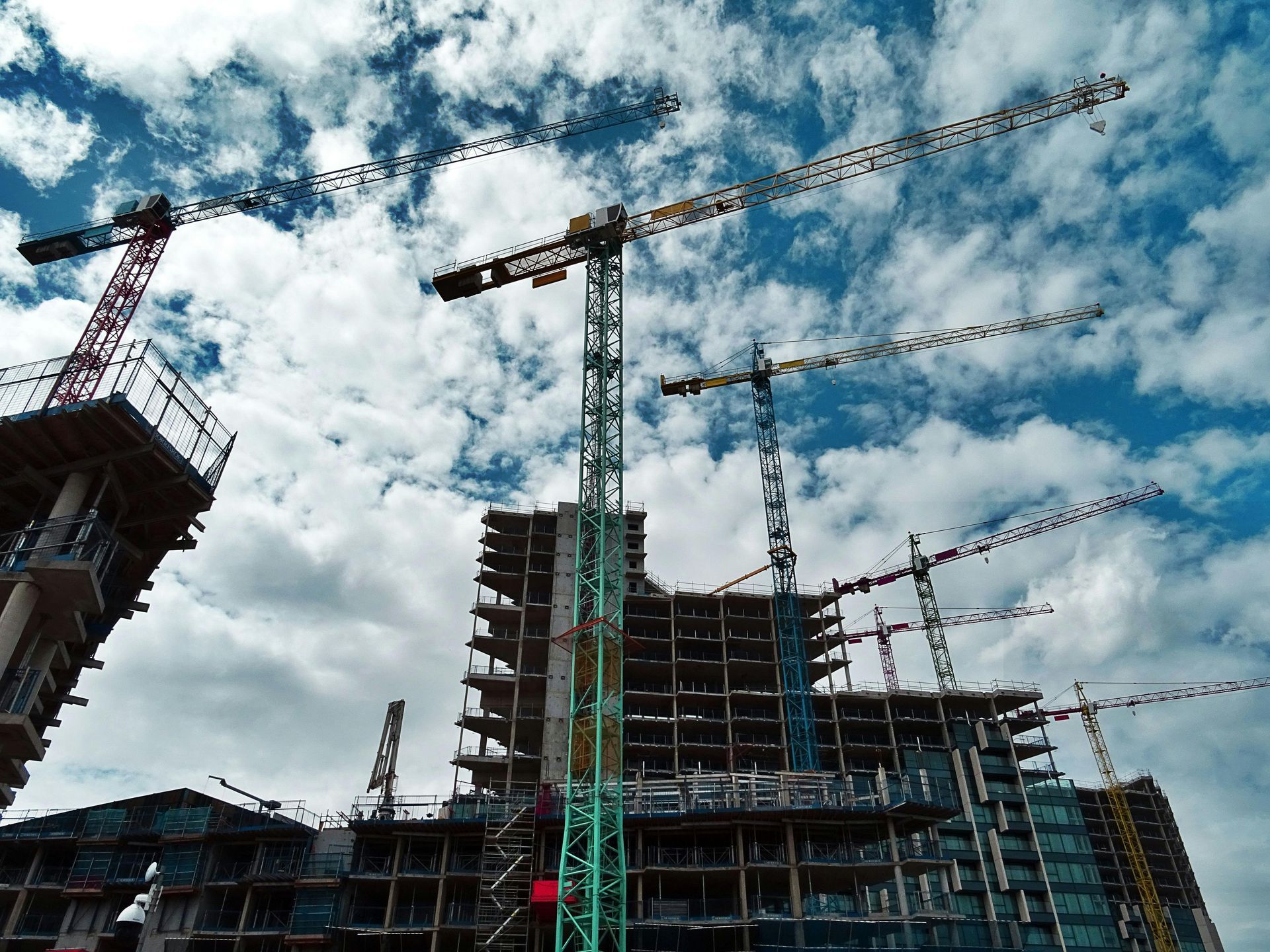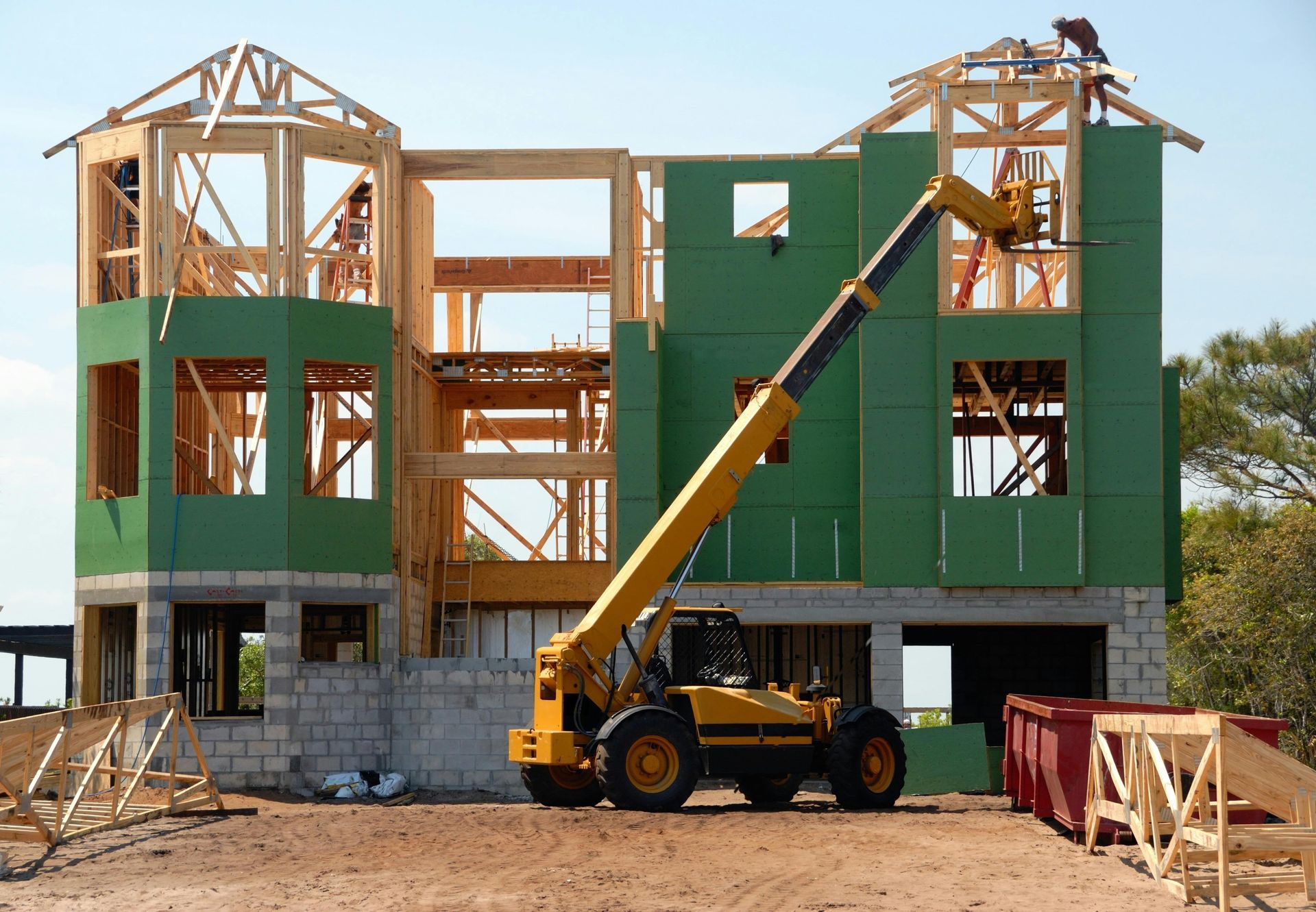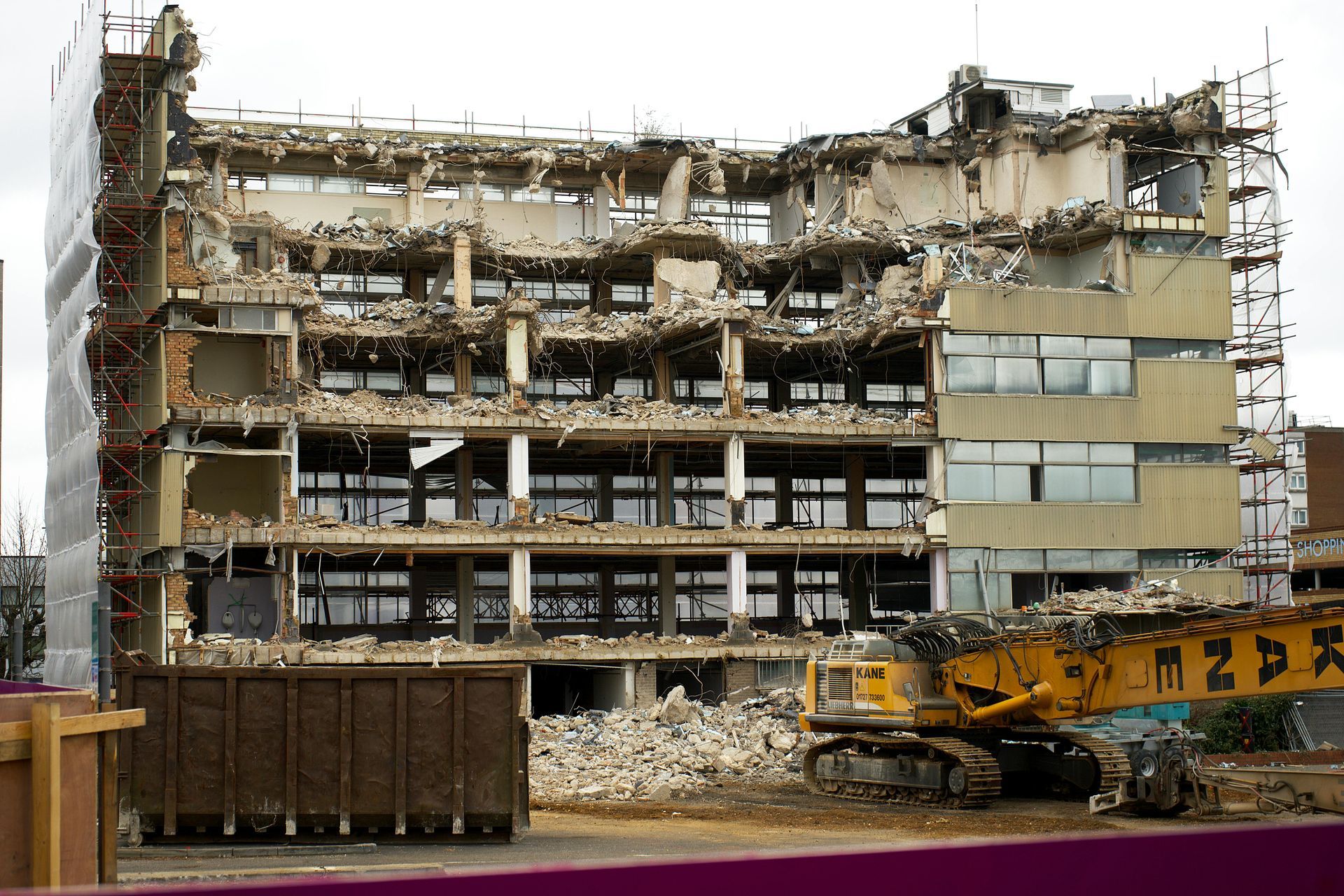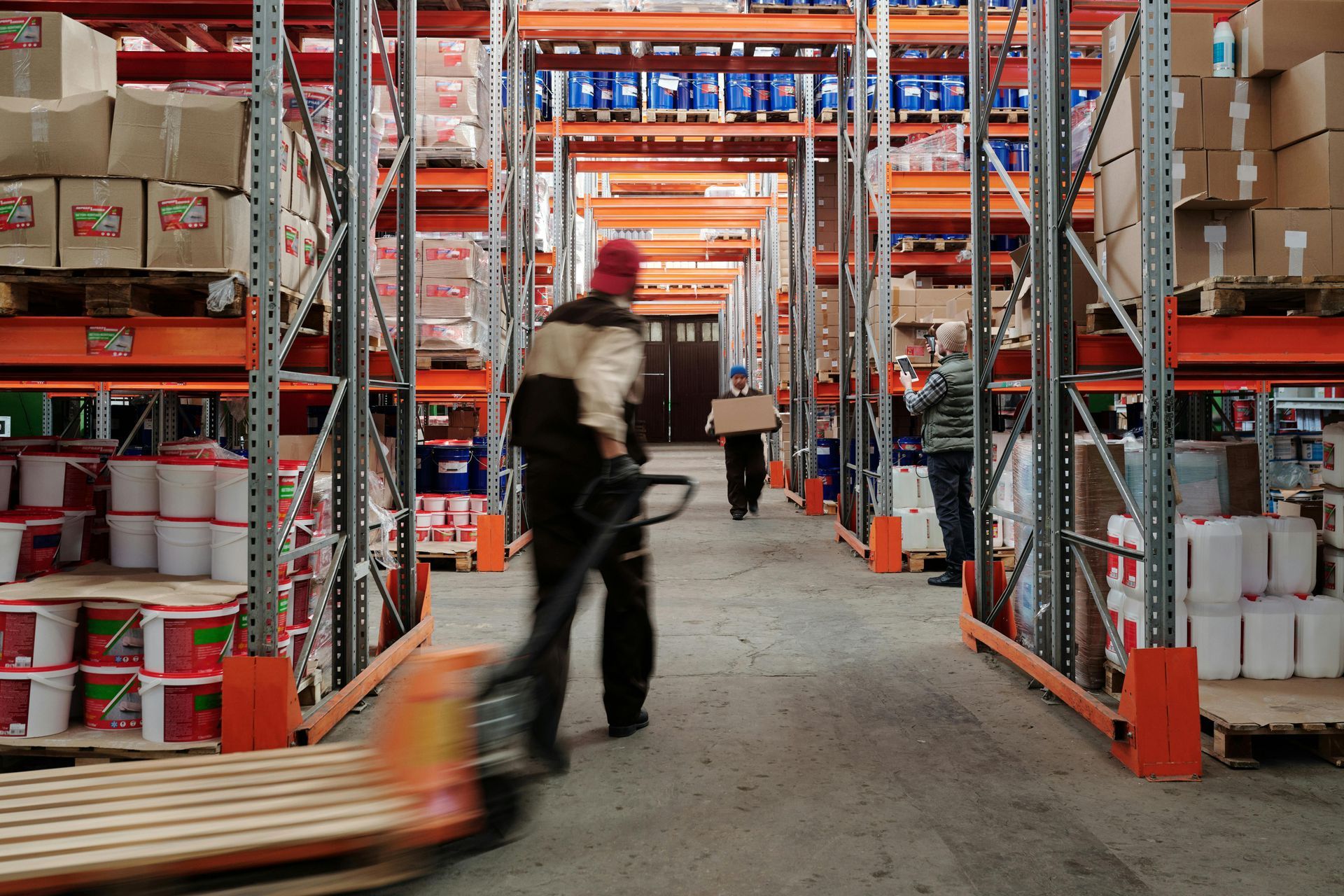"The Importance of Timely Deliveries in Multi-Unit Construction Projects"
The construction industry operates on precision. Every phase of a construction project is interconnected, with each task dependent on the completion of the one before it. Nowhere is this more critical than in multi-unit construction projects, where multiple units or structures are being built simultaneously. The complexity of managing such projects means that any delay in the delivery of materials can ripple through the entire schedule, causing costly setbacks, frustrated clients, and strained relationships.
Timely deliveries, particularly for materials, equipment, and tools, are essential to maintaining a smooth and efficient construction process. For multi-unit construction, where several buildings are being erected at once, the importance of on-time logistics becomes even more significant. With so many moving parts, the failure to receive crucial materials at the right time can lead to cascading problems, such as halted labor, increased costs, and missed deadlines. In this article, we will explore why timely deliveries are so vital in multi-unit construction and how reliable logistics can be a game-changer for project success.
1. Keeping Project Schedules on Track
Perhaps the most obvious reason why timely deliveries are critical in multi-unit construction is that they are directly tied to keeping the project on schedule. Construction projects are carefully planned, with each phase depending on the timely arrival of materials and equipment. In multi-unit construction, this complexity increases exponentially as teams work on multiple units at once.
When deliveries arrive late, even by a day or two, it can disrupt the entire workflow. Workers may be left idle, waiting for the materials they need to proceed with the next phase of construction. Delays in one area can have a domino effect, slowing down the entire project. If materials are delayed for one building, it can shift resources away from other units that are progressing on schedule. The longer these delays persist, the more difficult it becomes to regain lost time, leading to an inevitable extension of the project timeline.
How Timely Deliveries Help:
Maintain a steady workflow: When materials arrive as scheduled, workers can continue their tasks without interruption, maximizing productivity.
Avoid reallocation of resources: On-time deliveries prevent the need to shift resources from one area to another, keeping the entire project moving forward efficiently.
Reduce the risk of penalties: Many construction contracts include penalties for missed deadlines. Timely deliveries ensure that deadlines are met, avoiding costly fines.
Staying on schedule is essential in construction. In multi-unit projects, even minor delays can throw off the entire project, resulting in increased costs, reduced efficiency, and unhappy clients. Timely deliveries help construction companies stay on track and avoid the stress of falling behind.
2. Minimizing Costs and Avoiding Budget Overruns
Every construction project operates on a budget, and delays can quickly cause those budgets to spiral out of control. Timely deliveries are not only important for maintaining a project’s schedule but also for keeping costs in check. When materials or equipment don’t arrive on time, it can lead to several cost-related issues.
Firstly, when workers are left without the materials they need, companies often find themselves paying for labor that isn't being fully utilized. Idle workers still need to be paid, even if they are waiting for a delivery. Over time, these costs can add up significantly, putting pressure on the project's financial health.
Secondly, delays can cause companies to pay more for expedited materials or transportation services in a last-ditch effort to get things back on track. In some cases, companies may also need to pay overtime to workers who are making up for lost time.
How Timely Deliveries Reduce Costs:
Prevent idle labor costs: When materials arrive on time, workers can perform their duties as scheduled, reducing wasteful labor expenses.
Avoid expensive expedited shipping: Timely deliveries eliminate the need for rush orders or last-minute logistics solutions that come with higher costs.
Control overtime expenses: By sticking to the original schedule, there is less need for overtime, keeping labor costs within the projected budget.
By ensuring timely deliveries, construction companies can avoid unnecessary expenses that often arise from delays, ultimately helping to keep the project on budget.
3. Ensuring Client Satisfaction and Trust
In the construction industry, reputation matters. Clients expect projects to be delivered on time and within budget, especially in multi-unit construction, where the stakes are often higher due to the scale and cost of the project. The ripple effects of late deliveries can extend beyond the construction site, affecting the relationship between the construction company and its client.
When a project is delayed due to late deliveries, the client may begin to question the construction company’s reliability and professionalism. Even if the delay is not directly the company’s fault, the client’s perception of the construction team's ability to deliver is affected. This erosion of trust can lead to strained relationships and may jeopardize future contracts or referrals.
How Timely Deliveries Build Trust:
Meet client expectations: Timely deliveries help ensure that the project stays on schedule, meeting client expectations and maintaining their trust in your capabilities.
Avoid conflicts and misunderstandings: By preventing delays, you can minimize the chances of disputes or disagreements with the client over project timelines.
Strengthen long-term relationships: Delivering projects on time leads to satisfied clients who are more likely to offer repeat business or refer your services to others.
Client satisfaction is paramount in multi-unit construction, where delays can cause significant financial implications for both the client and the contractor. Consistently meeting deadlines through timely deliveries helps to establish and reinforce trust, ensuring a successful outcome for all parties involved.
4. Enhancing Productivity and Efficiency
The efficient management of materials is critical to the success of any construction project, but it becomes even more crucial in multi-unit construction due to the sheer volume of materials required. Timely deliveries play a vital role in keeping productivity high and the project moving forward smoothly.
When materials arrive on time, construction teams can focus on their tasks without interruption. This reduces the need for rework, accelerates project progress, and helps to optimize labor and resources. Late deliveries, on the other hand, lead to inefficiencies such as downtime, errors, and the need to shift focus from one task to another, which can result in mistakes and delays.
How Timely Deliveries Improve Productivity:
Enable continuous work: With materials arriving on time, teams can maintain a consistent workflow, completing each phase of the project as planned.
Reduce the risk of rework: Timely deliveries help avoid the rushed, last-minute decision-making that often leads to mistakes and rework.
Optimize resource allocation: When the schedule is reliable, labor and resources can be allocated more effectively, maximizing overall efficiency.
Productivity is key to keeping projects on schedule and budget. By ensuring that deliveries arrive when needed, construction companies can enhance the efficiency of their operations and complete multi-unit projects with greater ease.
5. Mitigating Risk and Avoiding Project Disruptions
Construction projects are inherently risky, with numerous factors—such as weather, labor shortages, and equipment failures—potentially causing delays. However, logistics delays are among the most preventable risks that construction companies face. Ensuring timely deliveries of materials can go a long way toward mitigating the risk of project disruptions.
In multi-unit construction, the stakes are even higher. With multiple units or structures under construction at the same time, the failure of one delivery can lead to multiple work stoppages and significant delays. Furthermore, delays often cascade, meaning that one late delivery can throw off several interconnected tasks, multiplying the impact of a single disruption.
How Timely Deliveries Mitigate Risk:
Reduce the likelihood of project delays: By ensuring that materials are delivered on time, construction teams can avoid many of the disruptions that would otherwise derail a project.
Minimize the impact of unforeseen issues: When deliveries are timely, there is more flexibility to handle unexpected challenges without causing further delays.
Improve contingency planning: Reliable delivery schedules give project managers greater control and predictability, allowing them to plan for potential risks with greater accuracy.
Timely deliveries are essential to keeping multi-unit construction projects on track, reducing the risk of costly disruptions, and ensuring that projects are completed as planned.
Conclusion
In multi-unit construction projects, timely deliveries are more than just a convenience—they are a necessity. From maintaining project schedules and minimizing costs to ensuring client satisfaction and enhancing productivity, the impact of on-time logistics is felt throughout every phase of the project. By partnering with a reliable logistics provider and prioritizing the timely delivery of materials, construction companies can avoid costly delays, improve efficiency, and build stronger relationships with their clients.
For construction companies looking to stay competitive in today’s fast-paced market, investing in a logistics partner that delivers on time, every time, is not just important—it’s critical to their success. With timely deliveries, multi-unit construction projects can be completed on time, on budget, and with the highest level of client satisfaction.










All Rights Reserved | ASK Logistix